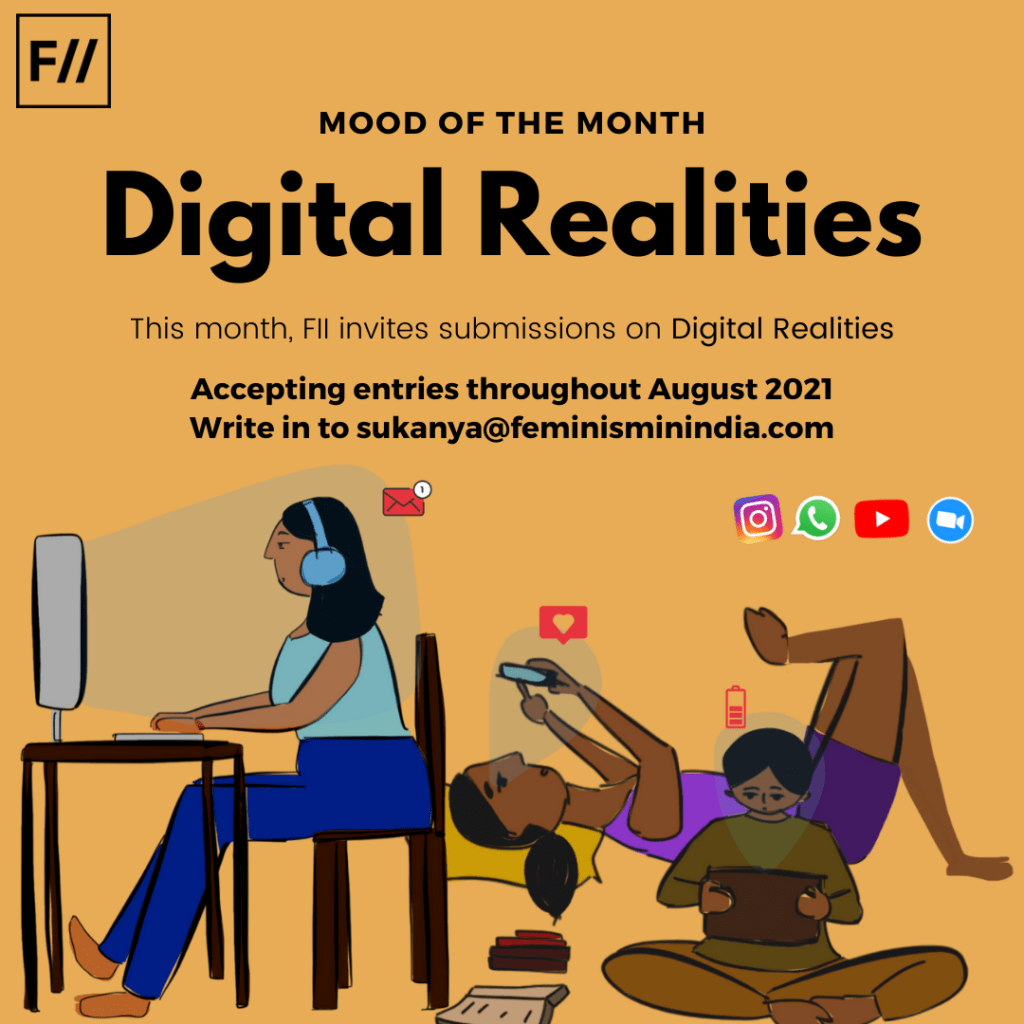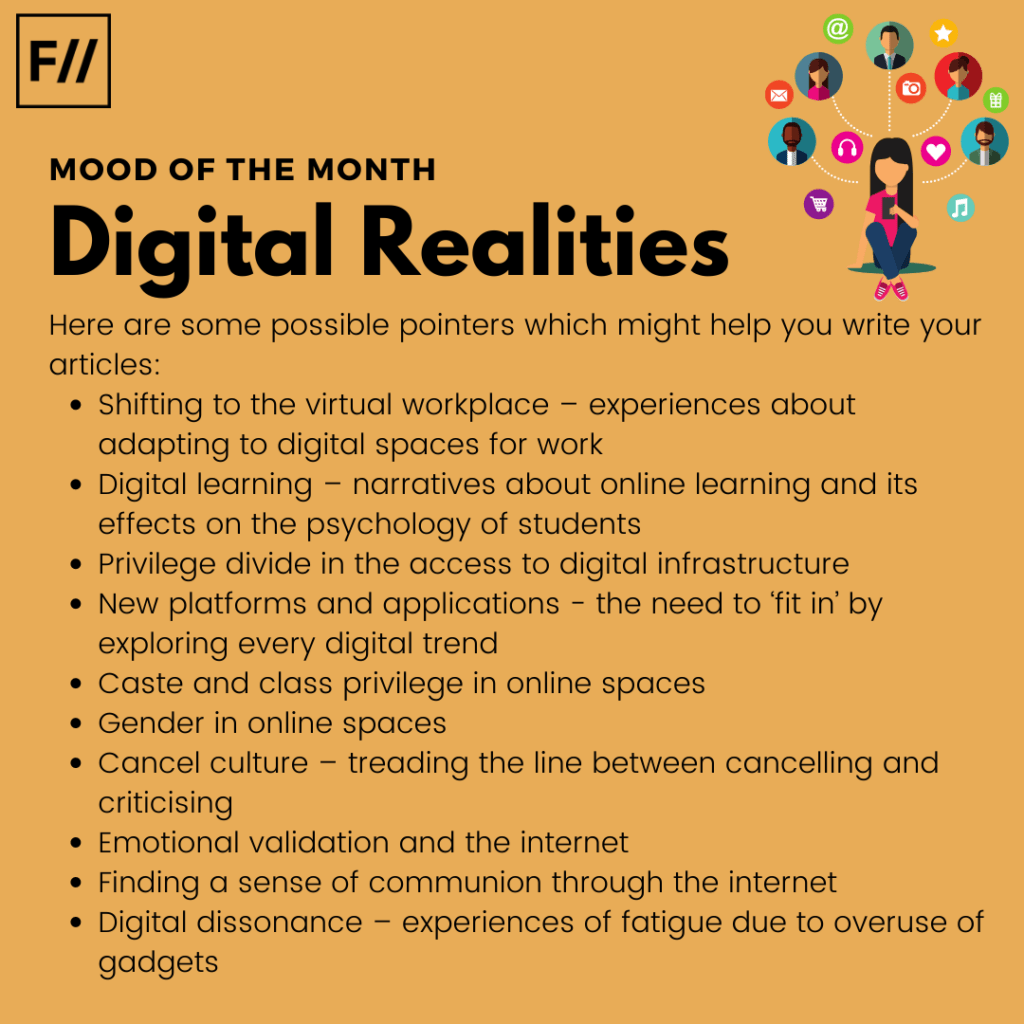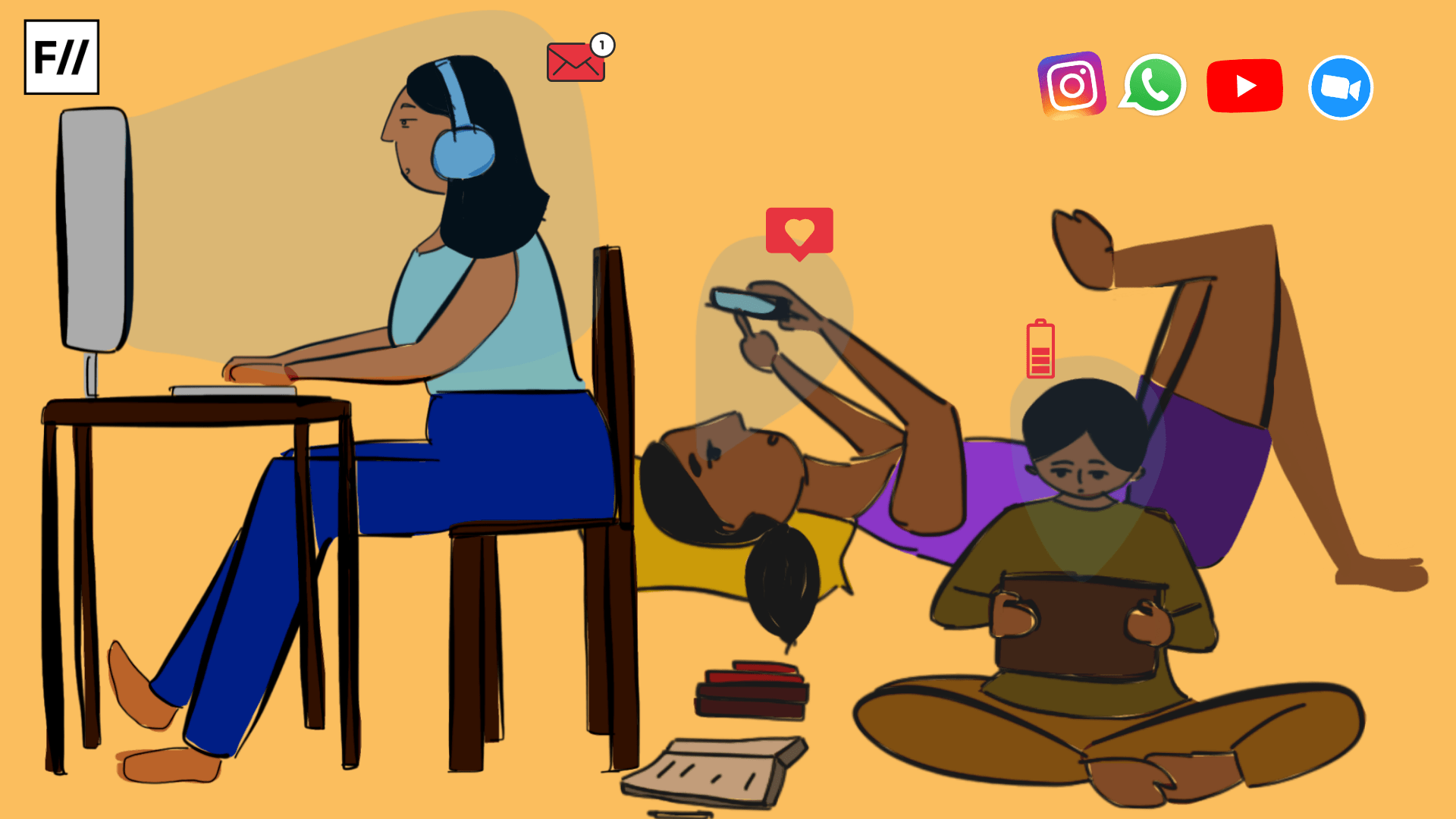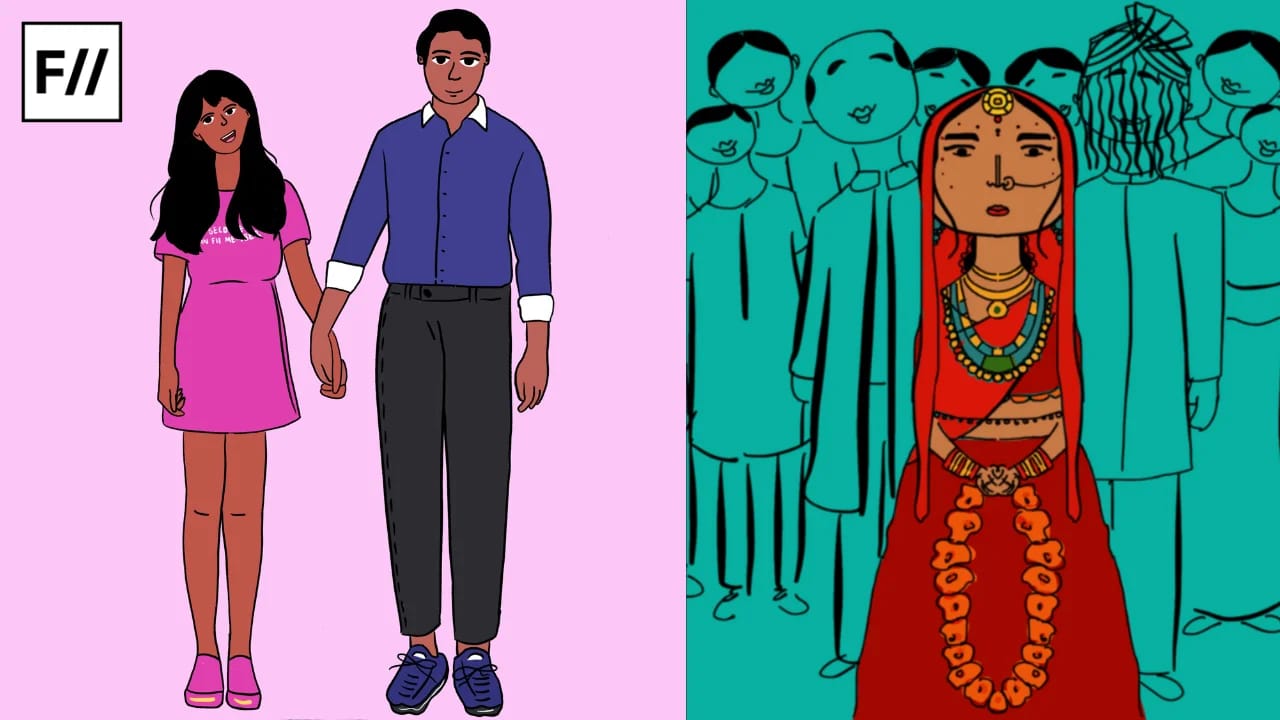The past year has shifted our professional and personal interactions to the virtual space out of necessity and convenience. We have all been transplanted into the digital arena and have now become dependent on it for almost all our needs owing to the pandemic. Virtual has become the new physical, and experiences from digital spaces have expanded like never before.
This has also led to the mushrooming of various products, services and platform that exclusively tap into the requirements of our worlds, that now depend on the internet to function.
Though this practice has made sure that business, personal interactions, education and work do not suffer drastically amidst the pandemic, the increasing dependency on the internet and gadgets has also thrown light on the glaring inadequacies and privilege gap in the access to digital infrastructure.
In the light of this context that governs most of our lives now, we at Feminism In India invite your submissions on Digital Realities throughout August, 2021. We hope to add to the conversation on the various social, political, personal and professional layers of how the virtual has now become our new physical

Political criticism and journalism have now almost entirely shifted to the digital space, also fuelling governmental restrictions on free speech, giving rise to conversations on censorship and internet trolls that ride on intersectionalities like gender, caste, sexuality and religion.
It has also created various kinds of mental and physical fatigue, leading to dissonance resulting from information overload, lack of physical intimacy, excessive online scrutiny and the search for validation through virtual applications.
The internet has both become an eco-chamber of problematic, majoritarian voices as well as opened up pockets of resistance, solidarity and collective unlearning.
We have gained, but we have also lost quite a lot in the attempt to survive the pandemic through digital avenues.
Also read: Inclusion Welcome, But LGBTQIA+ Users’ Online Dating Experiences Marred by Harassment, Transphobia & Privacy Risks
In the light of this context that governs most of our lives now, we at Feminism In India invite your submissions on Digital Realities throughout August, 2021. We hope to add to the conversation on the various social, political, personal and professional layers of how the virtual has now become our new physical.

Here are some possible concepts within the theme that may help you write your submissions:
- Shifting to the virtual workplace – experiences about adapting to digital spaces for work, the pros and cons of work from home, observations on productivity and digital workspaces, Zoom fatigue, work-life boundaries in the work from home context
- Digital learning – narratives about online learning and its effects on the psychology of students, the importance of physically being in a campus, children and online classes, the pressure to upskill and earn certifications, how the process of learning itself changes when entirely based on non-personal formats
- Privilege divide in the access to digital infrastructure – the gaps in access to internet and gadgets for the marginalised, the othering of the underprivileged through digital spaces, governmental apathy and the lack of comprehensive policy measures to ensure accessibility to all
- New platforms and applications – the mushrooming of applications like Clubhouse during the pandemic, the need to ‘fit in’ by exploring every digital trend, privacy threats and other infringements caused by online platforms
- Caste and class privilege in online spaces – the performativity of social media, elitism and influencer culture, efforts by collectives to have more informed political discussions in the digital space
- Gender in online spaces – online educators and the sexualisation of their bodies, gaze and verbal discomfort experienced by women in digital platforms, domestic chores and the added burdens of online classes for children assigned to women, sexual harassment in the work from home atmosphere, the othering of the queer community from mainstream digital spaces, the internet and agency of women and queer individuals
- Cancel culture – treading the line between cancelling and criticising, the mental health impacts of cancel culture, holding space and fostering empathy in digital exchanges, increased instances of cyber bullying, the political and gendered layers of trolling
- Emotional validation and the internet – the dependency on social media for validation owing to the lack of physical connections, the pressure to maintain an online personality, the challenges of seeking therapy through video calls, dating apps and the turbulence of being ghosted/disliked/left in the dark, anonymity and experiences of being intimate through digital platforms
- Finding a sense of communion through the internet – positive experiences of finding people with similar passions, the emergence of internet clubs and groups that promote artistic interests, opening up on social media, the comfort of feeling heard through digital applications while battling a grim larger scenario, online games and the solace of indulging in them
- New habits inspired by the internet – the pandemic and the internet’s role in promoting hobbies like gardening/cooking/other activities, online gymming and fitness experiences, social media influencers and changes in consumption patterns, personal essays on starting online ventures/youtube channels/ podcasts and the like
- Staying updated – how the elderly have been affected by the digital shift, efforts by the older generation to stay ahead of technology, how technology has changed parent-child relationships
- Digital dissonance – experiences of fatigue due to overuse of gadgets, the pressure to be conversational on online applications while experiencing pandemic distress, the changing boundaries of personal interactions, information overload, learnings from digital detox, prioritising yourself in the midst of social media herd mentality
- Content consumption – the rise of OTT platforms as major modes of entertainment, censorship and governmental control of content, the democratisation of content through OTT platforms that are driven by viewership not stardom, the emergence of progressive story telling and attempts to censor content
This list is not exhaustive. Please feel free to write on other related topics which we might have missed listing here. You may send your submissions to sukanya@feminisminindia.com
We look forward to your submissions and hope you enjoy writing them!
Also read: Lockdown and Education – Is India Ready For Online Classes For All?
Featured Image: Ritika Banerjee for Feminism in India
About the author(s)
Feminism In India is an award-winning digital intersectional feminist media organisation to learn, educate and develop a feminist sensibility and unravel the F-word among the youth in India.




